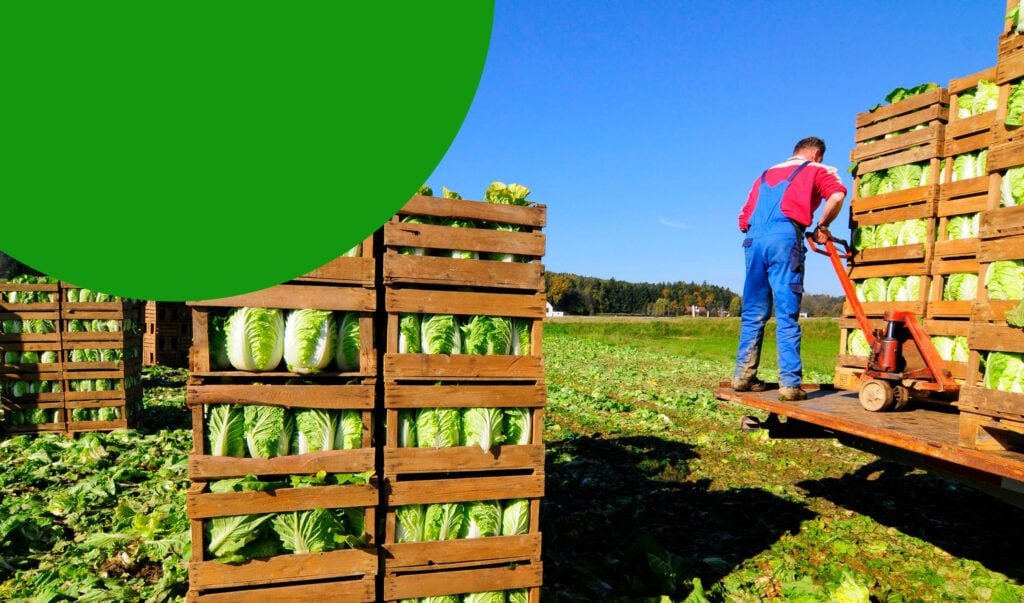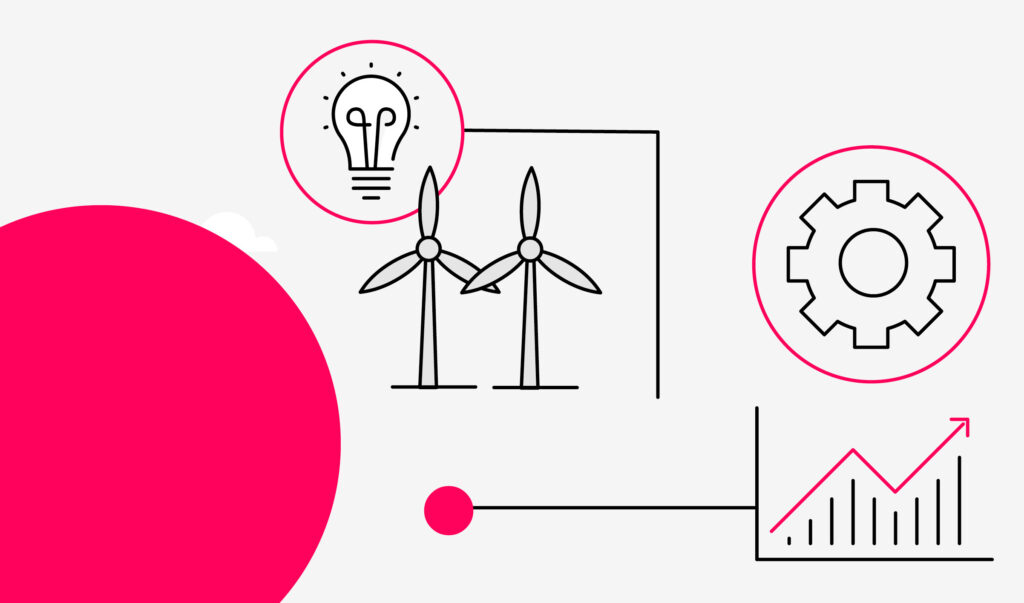Sustainable Procurement Practices & Supply Chain Success in the Retail Industry
Introduction
The retail industry is currently undergoing a significant transformation.
Consumers are becoming more environmentally and socially conscious about where their products, goods and services come from, and governments are implementing more regulations and sanctions to regulate companies’ impact in the ecosystems around them.
One way retailers can respond to the evolving landscape is by adopting sustainable procurement practices. But how?
For the retail sector, adopting sustainable procurement practices involves selecting suppliers that embrace environmentally friendly practices, assessing the ecological footprints of products and ensuring fair labour practices throughout the supply chain.
This approach not only aligns with broader corporate social responsibility (CSR) goals, it also resonates with the values of modern consumers and helps businesses prepare for upcoming regulatory compliance requirements.
Sustainability as a business practice is no longer an optional add-on and sustainable procurement has become a critical component of corporate strategy, which is why retailers and suppliers must adapt to stay ahead of the curve.
Let’s take a closer look at the importance of sustainable procurement practices across the retail supply chain, the benefits of sustainable procurement for business and ways in which Sedex can help organisations achieve sustainability goals in today’s complex environment.
What is sustainable procurement in the retail industry?
Today, sustainable procurement is crucial for retailers if they wish to see environmental, social and economic benefits across the supply chain.
A survey conducted by Stanford Business School revealed that 51% of global businesses have existing sustainable procurement policies and practices that contribute to the resilience of their value chains.
The key principles in sustainable procurement are:
- Environmental responsibility: By prioritising eco-friendly products, materials and production processes like sourcing renewable resources, reducing waste generation and promoting resource efficiency throughout the supply chain, sustainable procurement practices minimise environmental harm
- Social equity: Retailers must work with suppliers who uphold ethical labour standards, provide safe working conditions and respect the rights of workers across all tiers of the supply chain to prioritise fair labour practices, human rights protection and diversity and inclusion within supplier networks
- Economic prosperity: Retailers will contribute to economic development by supporting local suppliers, small businesses and socially responsible enterprises. Sustainable procurement emphasises transparency, fair trade and responsible sourcing practices that promote economic growth, job creation and community empowerment.
Over the last decade or so, sustainable procurement practices have undergone significant transformations, shaped by technological advancements, changing consumer behaviours and evolving regulations.

Promoting ethical labour standards, reducing environmental impact, promoting supplier diversity and enhancing transparency throughout the supply chain are just some of the ways organisations can achieve meaningful corporate social responsibility (CSR) goals while also driving long-term value.
The triple bottom line framework emphasises the need to measure impact in:
- Society: Companies should evaluate how their operations affect employees, suppliers, customers and communities
- Environment: Companies should assess and minimise their environmental footprint
- Economy: A company’s economic activities should look to contribute to sustainable economic growth
Businesses can achieve these goals through the following frameworks:
- Reporting on social, environmental, and financial performance to stakeholders
- Investing in research and sustainable development to create sustainable products and services
- Implementing Corporate Social Responsibility (CSR) programmes
- Working with suppliers to enhance their sustainability practices
By embedding CSR principles into procurement processes, companies demonstrate that their suppliers are required to operate ethically and sustainably, extending the impact of CSR throughout the retail supply chain.
In an era where businesses are increasingly judged by their ethical and environmental performance, CSR-driven procurement is not only an ethical imperative, but also a strategic advantage.
Key challenges surrounding sustainable procurement
Sustainable procurement is essential for retailers to reduce their social and environmental impact, but that doesn’t mean these practices come without their own unique challenges, including:
- Supply chain disruptions
- Managing costs
- Accurate demand forecasting
- Intricate supplier relationships
- Engaging suppliers
- Identifying supply chain opportunities and threats
- Managing supply chain transparency and complexity
- Measuring procurement performance
- Balancing long-term sustainability with short-term costs
- Compliance with sustainable procurement standards and regulations
For a greater chance of success in developing sustainable procurement practices, retailers can use a solution like Sedex, which offers not only a competitive advantage for retailers, but gives retailers the tools to thrive in today’s complex retail landscape.
The benefits of sustainable procurement practices
Implementing sustainable procurement practices not only protects the environment by conserving natural resources and reducing carbon emissions associated with the production, use and end-of-life of a product or service, retailers also see financial and reputational benefits, too.
But what are some of the main benefits of sustainable procurement in retail?
Enhanced supply chain visibility and transparency
Visibility, traceability, and transparency across the supply chain are paramount for customers and stakeholders today – and none of it would be possible without sustainable procurement practices.
Today, the majority of customers (73%) agree that traceability in the supply chain is important to them, and 71% would be willing to pay a premium for products with full transparency about their origins and journey.
Companies are increasingly expected to provide visibility into the origins of materials, services and products, to demonstrate their supply chains are free from unethical practices, human rights violations and environmental degradation.
Transparent supply chains help retailers mitigate risks, build trust with consumers and stakeholders and certify that their products and services align with CSR commitments.
Improve risk management and compliance with regulations
There is a growing threat of regulatory penalties for organisations that violate climate regulations and labour rights and human rights today.
By actively vetting suppliers for compliance with international labour standards, such as those outlined by the International Labour Organisation (ILO), and working with current suppliers to address gaps in compliance, retailers will improve risk management and compliance with regulations throughout the supply chain.
This is particularly important with the EU Corporate Sustainability Due Diligence Directive requiring companies to identify and address adverse human rights and environmental impacts throughout their value chains, with significant financial penalties for non-compliance.
Drive continuous improvement in ethical and sustainable practices
Sustainable procurement practices encourage the integration of environmental, social and economic considerations throughout the supply chain to achieve sustainability goals.
These processes foster visibility, traceability and transparency across the supply chain, driving continuous improvement through:
- Ethical sourcing practices (adherence to recognised standards like the Ethical Trading Initiative (ETI) Base Code)
- Environmental impact assessments
- Social responsibility initiatives
- Supplier engagement
- Performance monitoring and improvement
- Policy development
- Risk management
Strengthen relationships with stakeholders and enhance reputation
Companies that are committed to ethical, environmental, social and governmental practices tend to build higher levels of trust with stakeholders.
In fact, companies that practice sustainable procurement have a 60% higher level of trust from their stakeholders, because these practices can reduce risks and ethical violations such as labour exploitation or negative environmental impact.

Ethical and sustainable procurement practices demonstrate an organisation’s commitment to positive impact across the whole supply chain, in turn enhancing brand reputation.
Enhances brand reputation
Customers are increasingly drawn to brands and organisations that are committed to promoting workers rights, minimising their environmental impact and fighting against climate change.
Brands that adopt sustainable procurement practices benefit from brand equality, with World Economic Forum research demonstrating that sustainable procurement practices increase brand value by 15-30%.
Increased revenue
Many believe that enhanced sustainability practices within a business leads to higher costs, however, when implemented correctly, the opposite is true.
EY’s Sustainability Report 2022 found there was a rapid increase in revenues seen in 25% of the companies due to their efforts in creating and implementing sustainable practices, demonstrating a correlation between sustainable practices and financial profit.
Similarly, McKinsey research found that companies with strong ESG credentials save from 5% to 10% in costs, and top ESG performers grow exponentially by 10-20% more in value against other competitors.
Practical tips to implement sustainable procurement practices
To demonstrate progress and accountability across CSR initiatives, procurement teams should set specific CSR targets for sustainable procurement practices, and regularly measure performance against those goals.
Start with a strategic assessment
Begin by assessing your current procurement practices and supply chain to identify high-impact areas and potential risks. Prioritise categories or suppliers based on:
- Environmental impact (carbon emissions, water usage, waste)
- Social impact (labour conditions, human rights risks, community impact)
- Business importance (spend volume, criticality to operations)
- Regulatory risk (exposure to emerging legislation)
Set specific, measurable targets
Targets could include:
- Increasing the percentage of ethically and responsibly sourced products, certified by ethical sourcing programs including the Fairtrade or Rainforest Alliance
- Reducing the company’s carbon footprint by sourcing from sustainable suppliers or reducing transportation emissions
- Reducing waste or increasing the use of recycled materials and packaging
- Achieving 100% supplier completion of Sedex’s Self-Assessment Questionnaire (SAQ) for tier 1 suppliers by a specific date
Choose the right metrics
Each retailer will choose different sustainability KPIs to measure, based on business goals, from mitigating modern slavery to measuring carbon emissions.
Usually, environmental sustainability metrics are a main focal area, with environmental metrics covering activities impacting climate, waste and energy use.
Social responsibility metrics which focus on employee welfare need high levels of attention in sustainable procurement, working in line with the Modern Slavery Act, for example.
Corporate social responsibility KPIs could include:
- Compliance with Code of Conduct
- Compliance with UN global conduct
- Compliance with safety and security requirements
- Compliance with the ETI base code
- Number of suppliers audited against CSR standards
- Number of suppliers that filled in the Sedex self-assessment questionnaire (SAQ)
- Work-life balance (working hours)
- People development (learning hours)
Regular monitoring and reporting on CSR performance and Environmental, Social and Governance (ESG) goals with a platform like Sedex offers retailers insight into the supply chain, identifying areas for improvement and demonstrating CSR progress to stakeholders.
How technology can support sustainable procurement practices
Sustainable procurement often requires a more complex and comprehensive approach compared to traditional procurement practices.
It requires evaluating the sustainability of materials, tracking the environmental and social impact of each supplier and managing relationships with multiple stakeholders.
Keeping track of these different areas can feel overwhelming without the right tools – which is where Sedex can offer guidance, by helping to integrate human rights and environmental due diligence into policies and processes.
The Sedex Platform has key tools specifically design to support sustainable procurement in retail:
- A single, centralised platform providing real-time insights and visibility across the entire supply chain, allowing retailers to map complex multi-tier supplier netwroks
- Self-Assessment Questionnaire (SAQ) for businesses to evaluate their practices against international standards and identify improvement areas
- Risk assessment tools to proactively identify ethical risks across supply chains with indicators for high-risk product categories and sourcing regions
- SMETA (Sedex Members Ethical Trade Audit) methodology, one of the most widely used social audit procedures globally, providing a standard approach to supplier assessment
At Sedex, we empower businesses to source products and services ethically and sustainably by identifying potential adverse impacts in operations, subsidiaries and supply chains.
With the Sedex Platform, businesses receive a comprehensive solution that integrates all elements of the due diligence framework into one seamless system:
- Centralised management: All supply chain information in one secure location
- Scalable approach: Solutions for businesses of all sizes and complexity
- Collaborative platform: Connect with buyers, suppliers and partners in one ecosystem
- Continuous improvement: Regular updates and new features based on emerging best practices
By using Sedex, businesses gain complete visibility into the ethical and environmental performance of their supply chains, identifying areas for improvement and compliance with regulatory standards, paving the way for success in responsible sourcing and ethical and sustainable procurement practices.
Take the next step toward supply chain excellence
Ready to transform your approach to sustainable procurement? Sedex offers the tools, expertise and support you need to build a more transparent, ethical and resilient supply chain.
Book a demo today to see how our platform can help your retail business identify risks, improve supplier relationships, and demonstrate your commitment to responsible sourcing. Our team of experts will show you how Sedex can be tailored to your specific business needs.



